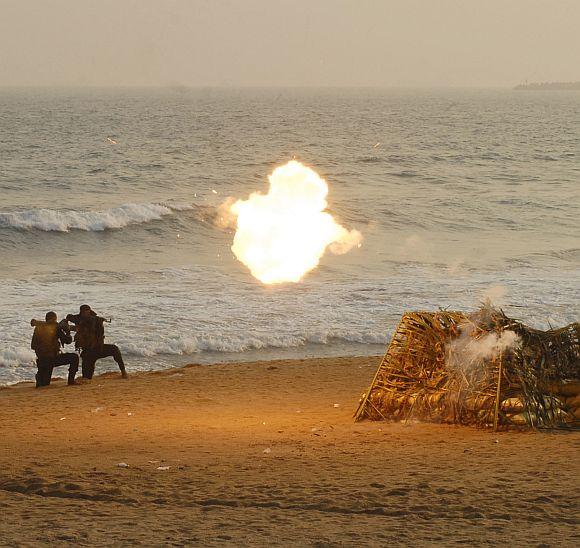
One is a distinguished retired army officer and another is an outstanding journalist. Both are serious, sharp and studious. They have written a book together which is one of the most wanted titles for world of Indian defence. India's Special forces; History and future of India's Special Forces written by Lieutenant General P C Katoch and journalist Saikat Dutta educates, informs and paves the way for intelligent debate.
In Part I of a two-part interview the two writers talked about how India has failed to strategically employ its considerable number of special forces especially in creating deterrence against the asymmetric war unleashed upon us by both Pakistan and China since past several years.
Part I: 'India must use special forces better against Pak, China'
Here Part II of the interview:
It has been reported that the Naresh Chandra Task Force has recommended that the Special Forces should be placed under the chairman of the chiefs of staff committee, who will have a tenure of two years. What is your comment on it? Will this recommendation be acceptable to the three forces?
Gen Katoch: The recommendation of the permanent chairman chiefs of staff committee is a euphuism putting the CDS into cold storage for next few years. But even as and when the CDS comes through, the bureaucracy has ensured that the politico-military connect is incomplete.
The government document has been cleverly drafted in that it says that as and when the CDS is appointed, whenever two service chiefs disagree, arbitration will be done by the MoD. To that end, even the CDS will hardly be a single point contact to the prime minister.
Special Forces need to be primarily employed strategically on politico-military missions. Such missions at times will be ordered directly by the political authority without reference to the military.
Moreover, our HQ integrated defence staff which was to fully integrate with the MoD has not been permitted to do so and instead came up as a separate headquarters. That is why the US model of special operations command is unlikely to be successful in India.
...

Special Forces need to be directly under the political authority.
This does not imply that all of what we are referring to as Special Forces be put under the prime minister. What we need to start with is just 250-300 special forces operatives, specialised for specified regions, which can be expanded subsequently on as required forces.
Obviously, the prime minister will require an advisory cell comprising advisers from intelligence agencies and Special Forces. The book will need to be read for the proposed set up and functioning. Special Forces have a covert role not only in irregular combat but also through information support operations, psychological operations, perception management, training friendly forces and other non-combat activities including economic, social and cultural, all of which require focused planning, cross-cultural communications, and preparation before the mission is launched.
The balance of what can termed as commando forces can be put under the permanent chairman chiefs of staff committee for better synergy, organisation, tasking, equipping etc. But, it must be ensured that this command is headed by and the HQ posted by Special Forces officers and not pseudo specialists who have never served in Special Forces -- as the army has attuned itself to.
Leaving them in the current state will amount to continuing the drift, for example, within the military, the special forces still do not have institutionalised system for real time/near real time intelligence, integral air/helicopter support, civilian support and the like. The ill-fated Jaffna University helicopter borne raid used four Mi-17 helicopters from four different air force helicopter units.
There will definitely be objections by services but is essential and if meeting the services requirements is ensured then their objections can be overcome. Major doctrinal change in a country like the USA too did not come about overnight.
...
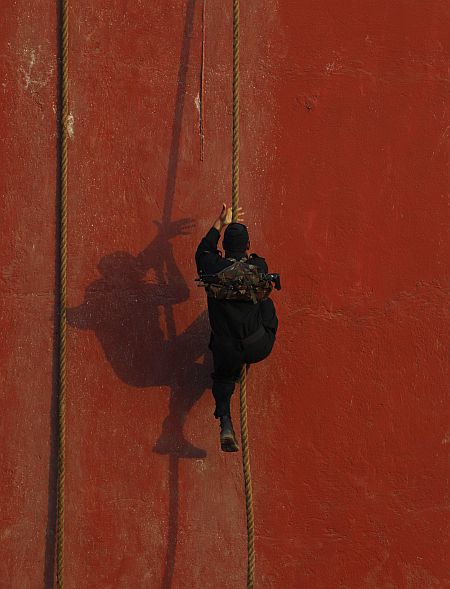
In fact, inter-service integration virtually had to be forced down upon the military because of a series of incidents over the years like the failed Iranian hostage rescue attempt, the terrorist attack on Beirut resulting in large number of American casualties and similarly the problems of interoperability and yet again many casualties suffered during the US operations in Grenada.
Integrating them under permanent chairman COSC will also help relieve special forces troops from extraneous duties like some service chiefs and even army commanders using these specialist troops for personal protection duties (as politicians use the NSG), whereas services police personnel are capable of undertaking such tasks. Hopefully, the permanent chairman of COSC will also desist from using the for his personal protection.
Dutta: In the UK, Russia, Israel and the US, who have some of the finest Special Forces in the world, they report directly to the prime minister or the president. In India, which borrowed the Special Forces concept from the success of these countries, they have been tied up in such a bureaucratic hierarchy that they have been reduced to a point of criminal inefficiency. Special Forces are employed when the political leadership needs critical options during critical emergencies.
They are the ones who should have a direct linkage to the Special Forces instead of using the conventional military hierarchies such as chiefs of staff committee etc. That would prove to be a disastrous move in our opinion.
One talks of the covert action division of the intelligence agencies, the National Security Guard and the special forces of the armed forces. How do you distinguish their functions? How will they co-ordinate their operations?
Gen Katoch: If we had optimised covert actions capabilities we would not be in the state in which we are today on both the external and internal front. We have had continuous strategic intelligence failures since 1950s. What covert intelligence are we talking about? What a shame that The New York Times has to tell us that 11,000 Chinese have been milling around in Pakistan/PoK and the foreign secretary asks the army for a detailed report instead of R&AW.
When the media has reported a year back that China has provided assault rifles manufacturing capabilities to Maoists, why have we not been able to locate and destroy them. The coordination of the armed forces Special Forces (read commando forces), NSG and SFF can be achieved, including with intelligence agencies by putting them together under the permanent chairman COSC.
...
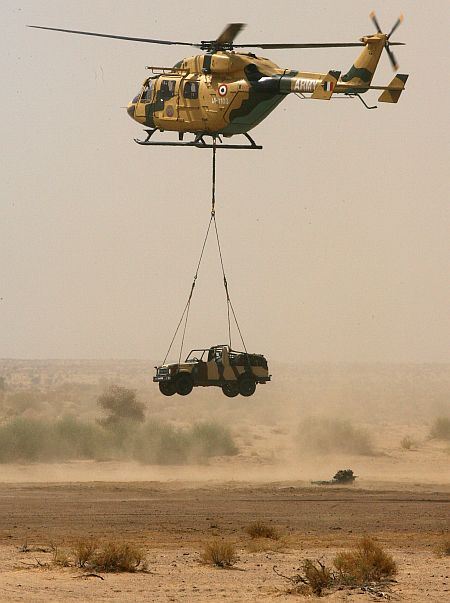
Under what conditions can Special Forces operate against foreign targets in foreign territory?
Gen Katoch: The most important factor that deters the hierarchy from deploying our special forces abroad is the lack of understanding of their employment beyond direct attacks, raids and ambushes.
The fact is that such tasks have gone onto the backburner and have been replaced mainly by politico-military missions that may not entail physical attack at all. This is not understood by the hierarchy. We have failed to capitalise on this present day concept and hence are blind to happenings beyond our borders leave aside shaping the environment to India's favour, even as China and Pakistan are blatantly fanning our internal fires.
The last conventional war was fought between Russia and Georgia in 2005. This is an age of asymmetric and irregular warfare. Special Forces tasks are more in non-war period than during conventional war. These tasks are covert covering a span of spheres like information support operations, strategic intelligence, perception management, getting hold of fault-lines of the adversaries, building partner capacity to counter asymmetric war and the like.
Can Special Forces operate against Indian targets in Indian territory? Under what conditions? Will state governments agree to it?
Gen Katoch: Our aggravating internal situation is being simply glossed over. Example is the expanding arc of Maoist insurgency -- now even to Assam and Tripura though the erstwhile home minister said in 2010 that the Maoist problem will be over in next 2-3 years. The Kerala headquartered Popular Front of India nurtured by Al Qaeda and Lashkar-e-Tayiba picked up arms against the Indian State years back -- as reported by R&AW and IB.
Four of their cadres were apprehended in Kupwara (North Kashmir) two years back trying to exfiltrate into Pakistan. Yet PFI does not figure in the MHA official list of 35 banned terrorist organisations.
The threat from PFI in the soft belly of south India magnifies if we are prepared to discern the infiltration of Al Qaeda and LTTE amongst the 77,000 foreign employees and 33,000 illegal immigrants in Maldives; cumulative terrorist threat being ignored because of vote-bank politics.
...
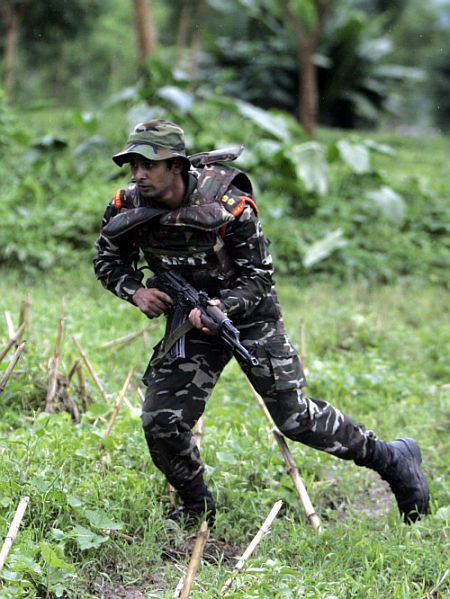
When P Chidambaram proposed the National Counter Terrorism Centre, he also proposed a separate ministry of internal security, giving clear indication that the MHA in its present shape is not geared to the challenge in totality. We need a strong NCTC but that too is bogged down.
The basic problem is that we have not been able to delink 'law and order' from terrorism and insurgency.
Technically, we are still dealing with the Maoist insurgency akin to 'law and order' which is a state subject. The magnitude of the threat (with external links) requires that the MHA/MIS (Ministry of Internal Security) deals with the issue centrally, with a 24x7 operations room, an effective NCTC linked with similar state level SCTCs linked through the NATGRID, and using the special forces target the jugular of the terrorists/insurgents including their leadership.
The reservations of states is for the reasons described by M K Dhar in his book 'Open Secrets -- India's Intelligence Unveiled wherein he categorically stated that irrespective of which government is in power in India, the entire intelligence effort is towards how to do down the opposition.
Dutta: In my view the Special Forces should ideally be kept away from internal security duties. They can participate in operations and help train internal security forces, but they should keep away from such operations. Instead, the capability must be developed by the police forces and the STF of Chhattisgarh Police or the COBRA battalions of the CRPF are steps in the right direction.
Former Special Forces personnel can be added to these units for advice, training and limited leadership.
...
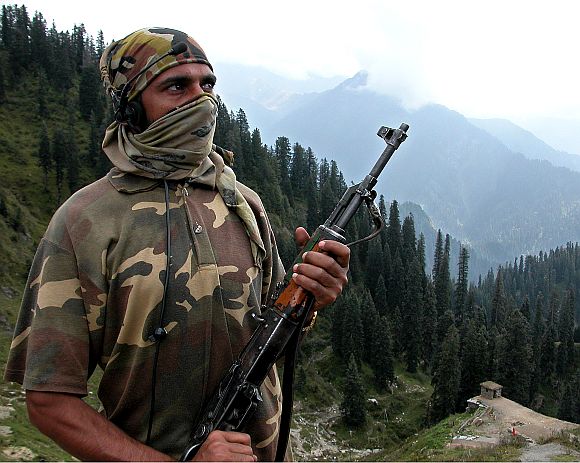
What's your view of the human rights issue attached to the Special Forces? By its very nature they are secretive so unaccountable. Right?
Gen Katoch: The human rights record of the Indian military is by far the best in the world as may be seen by viewing the website of our NHRC -- only 2-3 percent of human rights allegations have proved true and in these cases, military has ensured exemplary punishment. The same applies to Special Forces.
However, let me amplify that today's irregular war is highly dirty with no rules, no regulations and is borderless. What matters is national interest. US launched GWOT primarily against Al Qaeda but then used Al Qaeda for overthrowing Libya's Gaddafi and today is arming Al Qaeda in Syria.
Later the US attacked the Taliban but now is prepared to give part Afghanistan to Taliban post 2014 on a plate -- subcontracting Afghanistan to Pakistan in the process. GWOT itself was textured considering recent news there was secret deal with Pervez Musharraf that LeT camps traing anti-India jihadis will not be targeted by US drones.
There is no doubt that special forces operating in civilian attire are not subject to protection under the UN conventions but what protection have our boys got even in uniform -- Captain Saurabh Kalia and his patrol, Squadron Leader Ajay Ahuja, Lance Naik Hemraj besides Musharraf rewarding Ilyas Kashmiri for bringing the head of an Indian soldier.
Ironically, Musharraf who is called for televised leadership summits here has the distinction of being the sole army chief globally to have defecated on his own military uniform by refusing to accept dead bodies of Pakistani soldiers since he wanted them portrayed as civilian freedom fighters.
Now which human rights are you referring to? Does a country that is competing to gain the top slot in scams want to hide behind the facade of morals and not deploy its special forces abroad on the basis of morality and human rights? This actually amounts to cowardic
....
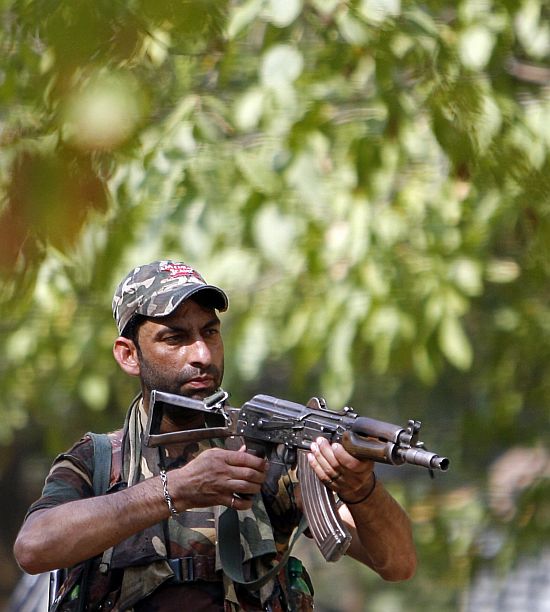
With compared to China, America or Russia where does India stand in raising its Special Forces? Are we capable to fight modern war in 21st century with help of Special Forces?
Gen Katoch: China, America and Russia are employing their special forces strategically. China has cleverly deployed PLA serving and veteran personnel including Special Forces operatives in the development projects she is undertaking globally, as also in our neighbouring countries.
China developed links with Al Qaeda and Taliban more than a decade back and was already training Taliban even as the US was invading Afghanistan in 2001.
US Special Forces are operating in some 200 countries, including India. Their undeclared tasks include conducting proactive, sustained "man hunting" and disruption operations globally, and employ unconventional warfare against state sponsored terrorism and trans-national terrorist groups globally.
Russia too has deployed its special forces similarly. Special Forces do not create resistance movements but advice, train and assist resistance movements already in existence. They are ideally suited to control fault lines of the adversaries without any signatures or with ambiguous signatures.
That is what Pakistan (mother of global terrorism) is doing today through her proxies and China has joined hands to destabilise us internally. We must employ our special forces strategically to control enemy fault lines.
What are your recommendations to the government to fine-tune the Special Forces? What are must-do-things to make it capable to play part in future world order and in resolution of conflicts?
Gen Katoch: Over the years, irregular forces have proved of great strategic value that can hardly be deterred through conventional power but in India we appear to not acknowledge this. Consequently, we have failed to create deterrence against irregular forces relying only on diplomacy, which itself is not fully effective not having been sensitised to military, particularly to the advantages of special forces.
Special Forces are a vital element of national power, possessing enormous freedom of action and should be fruitfully employed to successfully meet future challenges. There is urgent need to develop publicised overt capabilities and deniable covert capabilities as deterrence against irregular war thrust upon us and the will to selectively demonstrate it to ensure its effectiveness.
We need to create macro conditions for Special Forces through measures like a national vision, national level doctrine for employment of Special Forces, joint organisations and integrated intelligence support and the like. The must-do-things are discussed in the book.